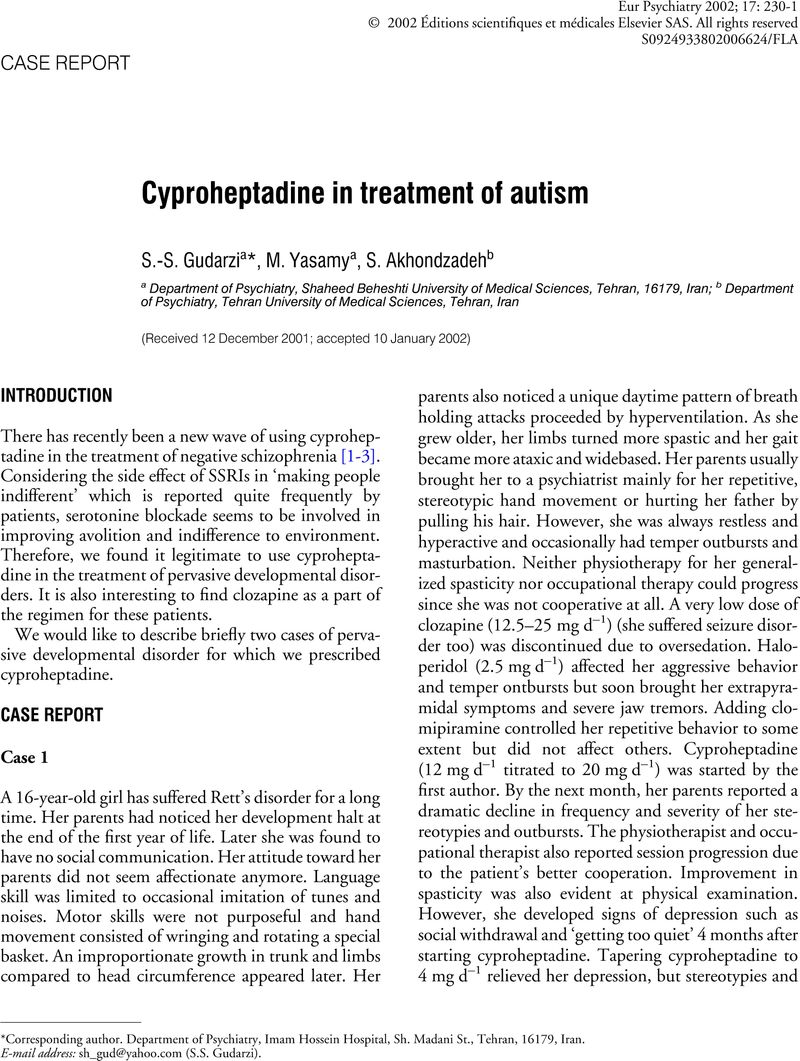Crossref Citations
This article has been cited by the following publications. This list is generated based on data provided by Crossref.
Bursztejn, Claude
2004.
Les traitements pharmacologiques de l'autisme.
Perspectives Psy,
Vol. 43,
Issue. 1,
p.
27.
Akhondzadeh, S.
Erfani, S.
Mohammadi, M. R.
Tehrani-Doost, M.
Amini, H.
Gudarzi, S. S.
and
Yasamy, M. T.
2004.
Cyproheptadine in the treatment of autistic disorder: a double-blind placebo-controlled trial.
Journal of Clinical Pharmacy and Therapeutics,
Vol. 29,
Issue. 2,
p.
145.
Eissa, Nermin
Sadeq, Adel
Sasse, Astrid
and
Sadek, Bassem
2020.
Role of Neuroinflammation in Autism Spectrum Disorder and the Emergence of Brain Histaminergic System. Lessons Also for BPSD?.
Frontiers in Pharmacology,
Vol. 11,
Issue. ,




Comments
No Comments have been published for this article.